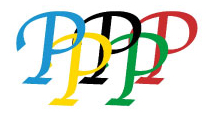Speaker
Description
The world-leading sensitivity of dark matter experiments such as LUX-ZEPLIN (LZ) is enabled by a strong foundation of liquid xenon detector research. However, many aspects of xenon detector technology are relatively unexplored, and potential improvements through R&D can dramatically extend the sensitivity of current experiments.
Examples of active areas of research to improve existing experiments include doping the xenon with lighter atoms and developing advanced methods of radon removal or mitigation. As these R&D efforts mature into implementable upgrades to the current experiments, the upgrades can fill the gap between G2 and G3 experiment timelines. R&D projects also serve as unique training grounds for young experimentalists. This becomes increasingly important as next-generation experiments grow in size and timescale. In addition, support for technology-focused R&D facilities, such as the Liquid Noble Test Facility (LNTF) at SLAC, can enable collaboration between different areas in particle physics which utilize common technologies.

